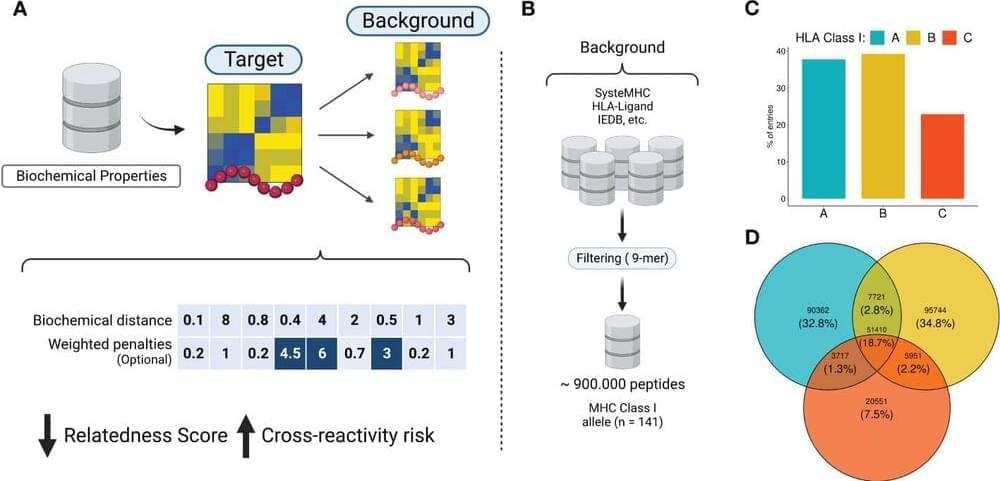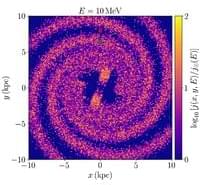Jun 15, 2023
New tool predicts if immunotherapy will mistakenly attack healthy cells
Posted by Shubham Ghosh Roy in categories: biotech/medical, chemistry, genetics
Researchers at the University of Houston are working to make T-cell immunotherapy safer, developing a tool called CrossDome, which uses a combination of genetic and biochemical information to predict if T-cell immunotherapies might mistakenly attack healthy cells.
T-cell based immunotherapies hold tremendous potential in the fight against cancer and infectious diseases, thanks to their capacity to specifically target diseased cells, including cancer metastasis. Nevertheless, this potential has been tempered with safety concerns regarding the possible recognition of unknown off targets displayed by healthy cells.
In one case, scientists created special T-cells that were supposed to target a protein found in a type of skin cancer called melanoma. However, these T-cells also ended up attacking a different protein found in the heart cells of some patients. This caused severe damage to the heart.


















